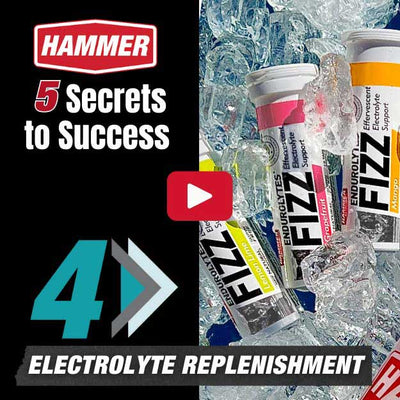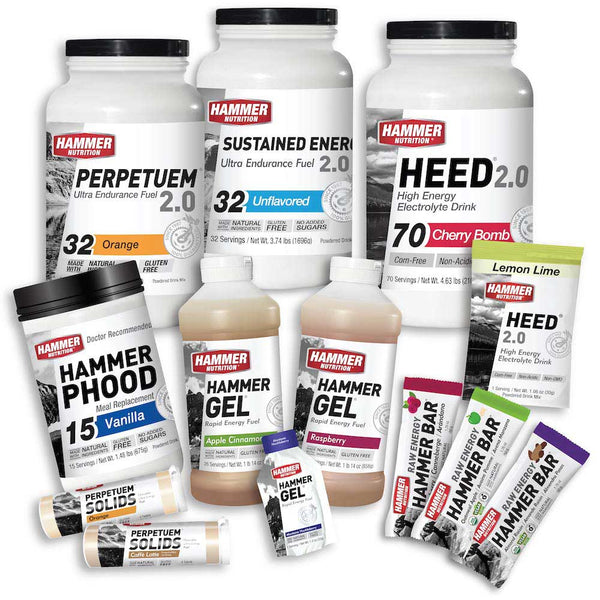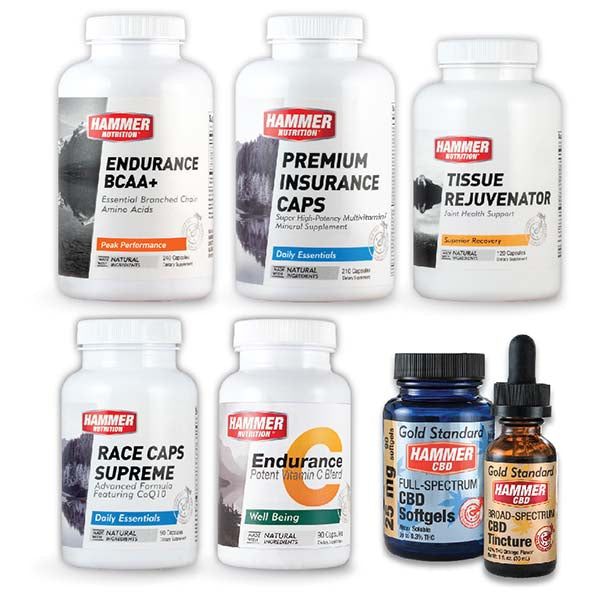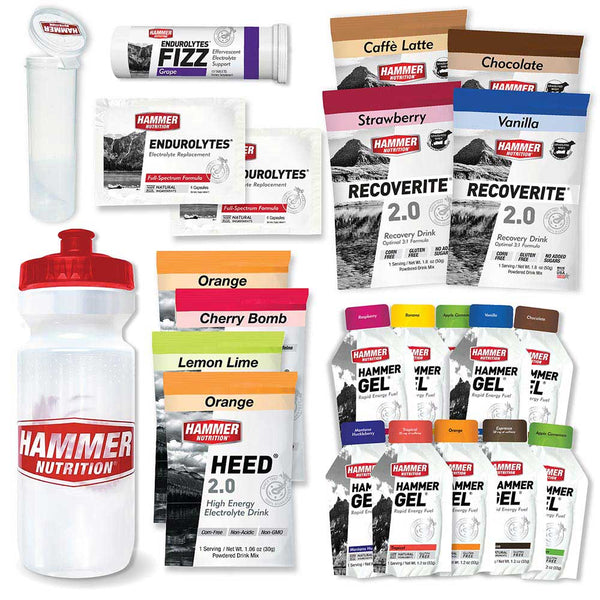What you need to know to stay in the flow
Our Recommendations
To avoid performance and health problems associated with low blood sodium, your fluid intake during exercise should not routinely exceed 25 oz per hour, depending on weight and conditions.
- Average athletes or average temps: 20 - 25 oz of fluids per hour (approx. 590 - 740 ml)
- Lighter athletes or cooler temps: 16 - 18 oz of fluids per hour (approx. 473 - 532 ml)
- Heavier athletes or hotter temps: up to 28 oz of fluids per hour (approx. 830 ml)
Water is the most critical component in exercise fueling. It cools your body, transports nutrients, and allows healthy cellular functioning and energy release. But many athletes have trouble gauging how much fluid to drink. Many attempt to replace fluids at the same rate they’re lost through sweat. While this may seem sensible, in truth it is a recipe for disaster.
The fact is you can finish an activity of any length with a water weight loss of 2% without suffering any performance declines or health impacts. So forget the advice to “drink to replace.”
Instead, abide by the following principle:
Your body cannot absorb fluids at the same rate it loses them.
On average, you lose about one liter, about 34 oz, of fluid per hour during exercise—and even more in extreme heat or humidity.
Research has shown the optimal average water intake to be one water bottle (20 - 25 oz) per hour.
The goal with hydration, like caloric consumption, is to consume an amount your body can process without causing additional side effects. Research by Dr. Tim Noakes, who collected data for ten years from some 10,000 ultra runners, shows that most endurance athletes can efficiently absorb 16 to 24 fluid oz per hour and that consuming more than this does not improve performance. In fact, overconsumption can have grave consequences. When blood sodium concentrations become too low, performance immediately declines.
In severe cases, excessive fluid intake can overwhelm the body’s levels of electrolytes, leading to water intoxication or dilutional hyponatremia, which can be fatal.
BOTTOM LINE
By hydrating properly (taking in 20 - 25 oz of fluids per hour), you’ll attain peak performance with less fatigue, bloating, and cramping. You’ll feel better before, during, and after you exercise.








